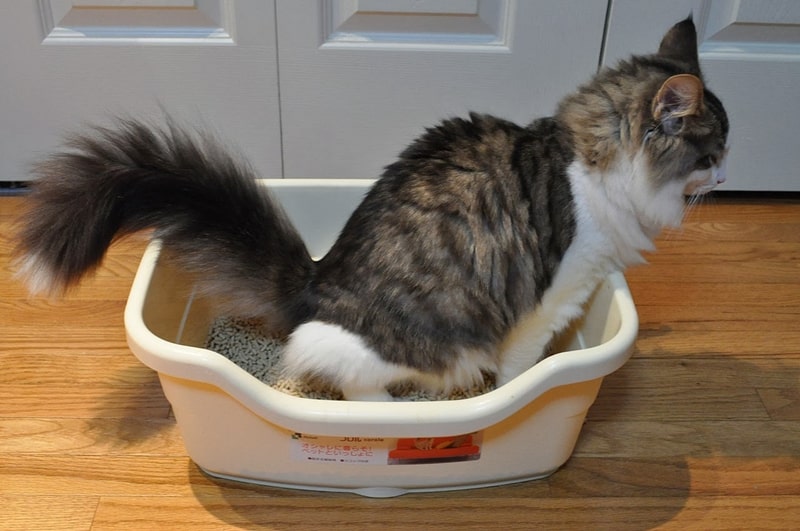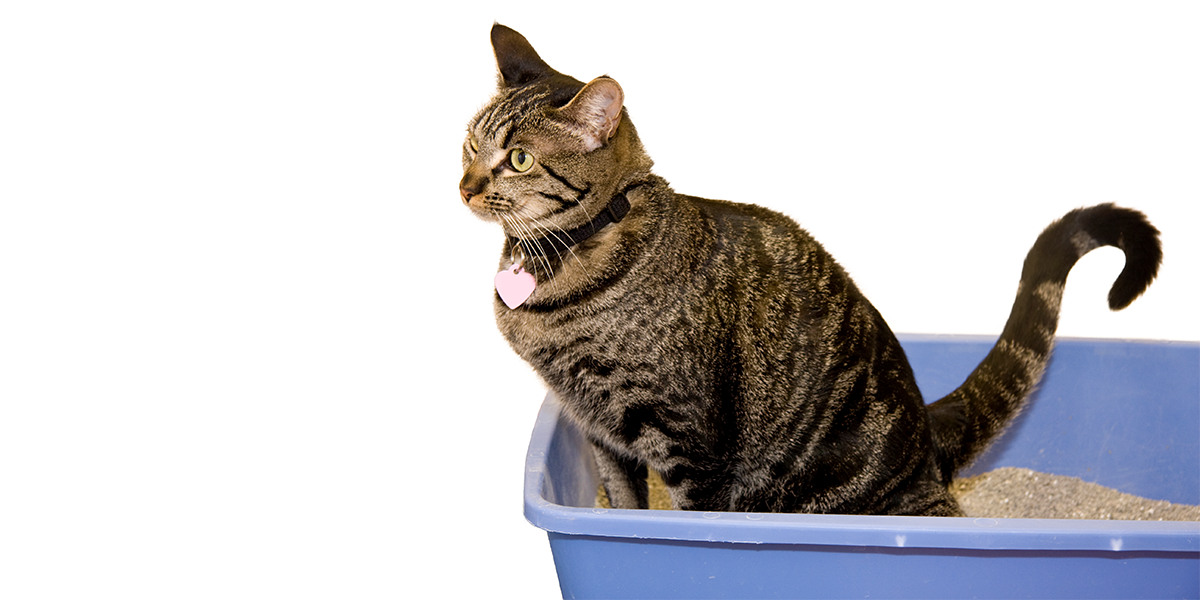Hematuria in cats – Hematuria is the presence of blood in the urine. Hematuria, the medical term for blood in the urine, can be caused by urinary system abnormalities or disease processes elsewhere in the body that impact the urinary tract or kidneys. Hematuria is distinguished by the presence of pink, red, brown, or black urine, as well as the appearance of blood cells under the microscope.
A urinalysis is done to evaluate whether the blood is the consequence of urinary tract disease or a coagulation or bleeding disorder. Blood tests are often required to confirm or rule out a bleeding or clotting condition.

Table of Contents
Causes of Hematuria in cats
Hematuria in cats- Most cases of hematuria in cats are caused by urinary sickness, and your veterinarian is the best person to tell you what that illness is and where it is. Bacterial Urinary Tract Infections are significantly less common in cats when compare to other pets like dogs, with just one to two percent of cats experiencing Urinary Tract Infections at some point in their lives. Pandora Syndrome is a more prevalent ailment in cats that does not have a bacterial component and requires more than just antibiotic treatment.
One of the most common illnesses in cats is a condition of the lower urinary system. It causes inflammation and pain in the bladder and the urethra, the tube that connects the bladder to the outer world. FLUTD (Feline Lower Urinary Tract Disease) or FIC (Feline Idiopathic Cystitis, idiopathic means the cause is unclear), as well as Pandora Syndrome, are all names for this condition.
Bladder inflammation, difficulty, and pain when peeing increased frequency of urination, urinating outside of the box, and blood in the urine are all common symptoms in cats with Pandora syndrome. Cats with Pandora Syndrome frequently experience intermittent urine problems.
A medical problem called urethral blockage can cause a cat to urinate blood. This illness is more common in male cats, but it can also affect female cats. This is because a male cat’s urethra is significantly longer and narrower than a female cat’s, making it more prone to becoming obstructed.

Mucous plugs, urinary stones, urinary crystals, strictures, and tumors are all possible causes of blockage. Urethral spasms or edema caused by inflammation in the lower urinary tract might cause an obstruction. When this happens, a cat’s bladder becomes difficult or impossible to empty, posing a life-threatening situation.
Symptoms of Hematuria in Cats
The following are the signs and symptoms to watch in a cat and these include
- Urination is more frequent.
- Urinary with pain or dysuria. Affected cats frequently strain in the litter box for lengthy periods of time, passing just little amounts of pee.
- Urine that is bloody, foul-smelling, or discolored.
- Urinating in strange locations like furniture, floors, and corners.
- Prolonged grooming or licking of the vaginal area.
- Urinary incontinence. These cats struggle to urinate and only produce a few drops or none at all.
- Urinating with difficulty
- Increased consumption
Diagnosis of Hematuria in cats
Hematuria in cats- Your veterinarian will begin by taking your cat’s medical history and doing a physical examination. Blood tests, such as a serum biochemistry panel and complete blood count (CBC), as well as a urine analysis, may be required for a cat peeing blood. Your veterinarian may order more specialized lab tests, such as a panel to check for irregularities in blood coagulation, depending on the underlying condition.
A urine culture test can help identify the specific bacteria that may be present if your veterinarian suspects a urinary tract infection. Urinary tract stones, tumors, or other abnormalities that can cause a cat to pee blood, such as an irritated bladder, are frequently diagnosed by abdominal X-rays or an abdominal ultrasound.

Treatment of Hematuria in cats
Hematuria in cats does not have a uniform therapy. Each case must be diagnosed, and therapy must be tailored to the cat in question. Clinical symptoms and hematuria in cats may reoccur despite adequate tests and treatment, necessitating additional therapy and diagnostic testing. Patience and perseverance are typically required while treating lower urinary tract illnesses in cats.
- The underlying cause of feline hematuria determines the treatment. Other therapies for blood in the urine include dietary adjustments, anti-inflammatory medicines, environmental changes, encouraging higher water intake, and others.
- Lower urinary tract bacterial infections usually respond favorably to antibiotic therapy for two to four weeks.
- Other therapies for sterile or idiopathic cystitis may include dietary adjustments, anti-inflammatory medicines, environmental changes, encouraging higher water intake, and others.
- If a cat’s urethra becomes plugged, immediate treatment is essential to clear the obstruction.
- Uroliths (bladder stones) must be removed if they are present.
RECOMMENDED ARTICLES
- Diarrhea In Cats- Causes, Diagnosis, And Treatment
- Napoleon Cat Breed – 7 Exclusive Body Characteristics, Caring And Health
- Heartworms in Cats -10 Exclusive Signs and Symptoms And Treatment
- Munchkin Cat Breed – 8 Exclusive Body Characteristics, Behaviour And Health
- Norwegian Forest Cat – 8 Exclusive Body Characteristics, Behaviour And Health
If you like, please share it. Sharing is usually caring.




